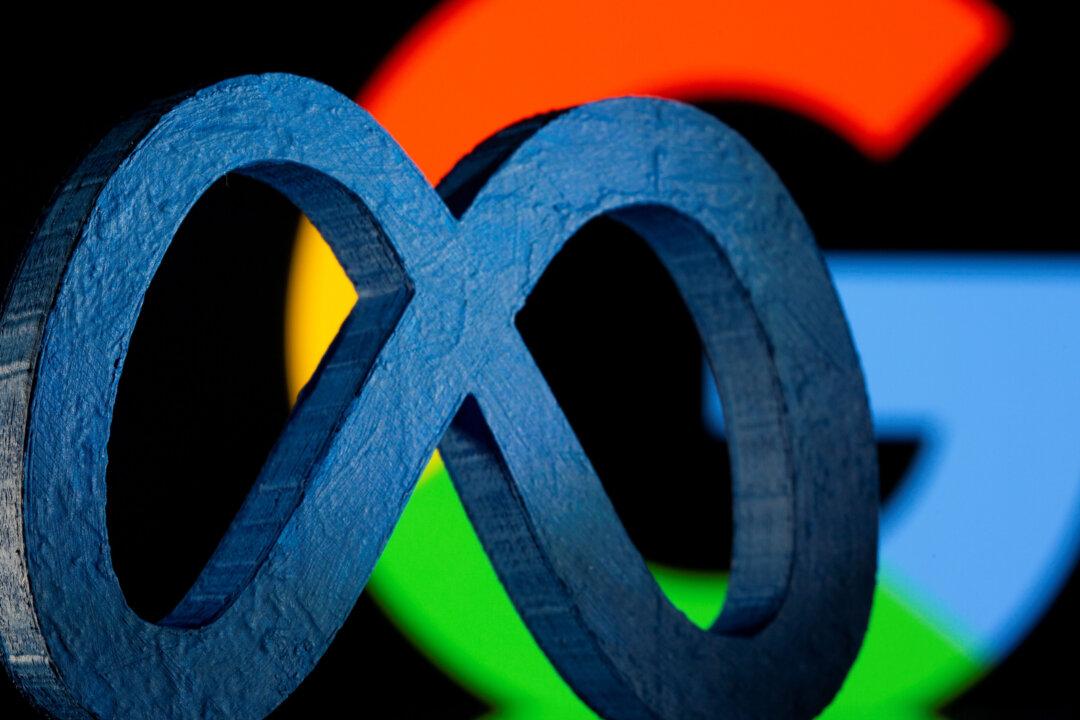
A 3D print of Facebook's new rebrand logo Meta in front of displayed Google logo on Nov. 2, 2021. Dado Ruvic/Reuters
Commentary
The standoff between the Trudeau government and large social media platforms over the Online News Act (
Bill C-18) is heating up.
